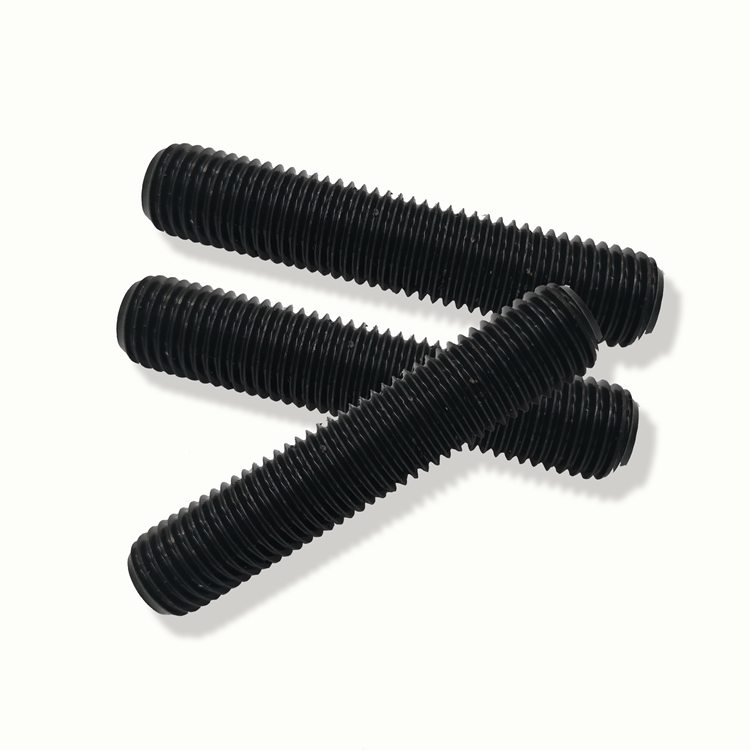Explore Premium Quality 1 4 Bolts for Enhanced Durability and Performance in Your Projects
Aug . 08, 2024 07:25 Back to list
Explore Premium Quality 1 4 Bolts for Enhanced Durability and Performance in Your Projects
The Importance of High-Quality Bolts in Engineering and Construction
Bolts are an essential component in engineering and construction, serving as the backbone of many structural and mechanical assemblies. Among the myriad of options available in the market, high-quality bolts stand out for their unique characteristics and reliability. This article explores the significance of high-quality bolts, particularly focusing on a category often referred to as 1 4 bolts, which can be interpreted as bolts that are 1/4 inch in diameter.
Definition and Specifications
High-quality bolts, often crafted from robust materials such as stainless steel, alloy steel, or carbon steel, exhibit superior tensile strength, ductility, and corrosion resistance. Specifications such as ASTM, ISO, and DIN standards govern the manufacturing process to ensure that these bolts perform reliably under various conditions. For instance, a 1/4-inch bolt typically has a particular torque specification and load capacity that must be considered to achieve optimal performance in application.
Reliability in Critical Applications
In critical applications such as aerospace, automotive, and construction, the reliability of fastening systems is paramount. High-quality bolts play a vital role in maintaining structural integrity and safety. For example, in bridge construction, the failure of a single bolt can lead to catastrophic outcomes. Therefore, using high-quality materials and ensuring precise manufacturing processes is essential for applications where safety is non-negotiable.
Enhanced Performance in Challenging Conditions
high quality 1 4 bolts

High-quality bolts are designed to withstand harsh environments, including high temperatures, extreme pressures, and aggressive chemical exposures. In the oil and gas industry, for example, components are often subject to corrosive substances. Bolts that meet high standards of quality will feature coatings or treatments, such as galvanization or passivation, which enhance their corrosion resistance. This attribute significantly extends the lifespan of assemblies, leading to reduced maintenance costs and improved overall system reliability.
Cost-Effectiveness and Long-Term Benefits
Although high-quality bolts may come with a higher upfront cost compared to their lower-quality counterparts, they offer significant long-term savings. The durability and reduced risk of failure mean that projects require less frequent replacements and repairs. Furthermore, investing in high-quality bolts minimizes downtime, which is critical in industrial settings where prolonged outages can result in substantial economic losses.
Environmental Considerations
Sustainability is an increasingly crucial factor in all industries. High-quality bolts, by virtue of their durability, contribute to environmentally responsible practices. By reducing the frequency of replacements and the overall need for resources to produce new components, they support a more sustainable approach to engineering and construction. Various manufacturers are increasingly adopting eco-friendly practices in their production processes, making high-quality bolts an even more attractive option for environmentally-conscious companies.
Conclusion
In conclusion, high-quality 1/4-inch bolts are essential for ensuring safety, reliability, and longevity in various applications across diverse industries. Their ability to perform under strenuous conditions, coupled with cost-effectiveness in the long run, positions them as a preferred choice among engineers and builders. As industries continue to prioritize safety and sustainability, the demand for high-quality fastening solutions like bolts will only increase. Investing in such reliable components is not just a choice—it's a necessity for the future of engineering and construction.
Latest news
-
Durable Bolts for Lawn Mower Handle - Top Supplier & Manufacturer
NewsAug.22,2025
-
High-Quality Bolts for Lawn Mower Handle Supplier & Manufacturer
NewsAug.21,2025
-
Reliable Axle Nuts Supplier | High-Quality Automotive Parts
NewsAug.19,2025
-
Premium Wire Bolts Suppliers | Durable & Reliable Fasteners
NewsAug.18,2025
-
Leading Metric Wood Screw Companies & Manufacturers
NewsAug.17,2025
-
Top Wire Bolts Suppliers - Quality & Durable Fasteners
NewsAug.15,2025
